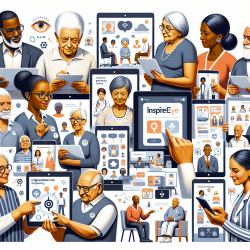Introduction: A Data-Driven Approach to Special Education
In the realm of special education, achieving transformative outcomes for children often requires a blend of expertise, compassion, and evidence-based strategies. As educational psychologists, you are already aware of the profound impact that tailored interventions can have on a child's development. However, the integration of online therapy services into educational settings is proving to be a game-changer, providing a rich source of data that informs and enhances the effectiveness of these interventions.
The Role of Online Therapy Services
Online therapy services are not just a modern convenience; they are a pivotal tool in the arsenal of special education. These services offer a unique advantage by enabling therapists to collect and analyze data in real-time, allowing for immediate adjustments to therapy plans based on the child's progress. This data-driven approach ensures that interventions are not only personalized but also dynamically adapted to meet the evolving needs of each child.
Data-Driven Decisions: The Heart of Effective Interventions
The cornerstone of successful therapy in special education is the ability to make informed decisions based on reliable data. Online therapy platforms provide an abundance of data points that can be analyzed to understand patterns, measure progress, and predict outcomes. This wealth of information empowers therapists and educators to:
- Identify specific areas where a child may be struggling.
- Track the effectiveness of different interventions over time.
- Adjust therapy goals and strategies to optimize outcomes.
Such data-driven insights are invaluable in creating a roadmap for each child's educational journey, ensuring that they receive the support they need to thrive.
Case Study: Transformative Outcomes in Action
Consider the case of a young student with speech and language challenges. Through the use of online therapy services, therapists were able to meticulously track the student's progress, identifying specific phonetic patterns that needed attention. By leveraging data analytics, the therapy team was able to customize the intervention plan, focusing on the most impactful areas. The result? A significant improvement in the student's communication skills, boosting their confidence and participation in the classroom.
Conclusion: The Future of Special Education
As educational psychologists, your role in shaping the future of special education is crucial. By embracing online therapy services and a data-driven approach, you can unlock the hidden potential in every child, paving the way for transformative outcomes. The integration of technology in education is not just about convenience; it's about empowering children to reach their fullest potential.
In conclusion, the marriage of online therapy services with data-driven decision-making represents a paradigm shift in special education. By leveraging the power of data, we can create more effective, personalized interventions that lead to lasting, positive change for children. The journey to self-actualization begins with informed, evidence-based strategies that recognize and nurture the unique strengths of each child.










